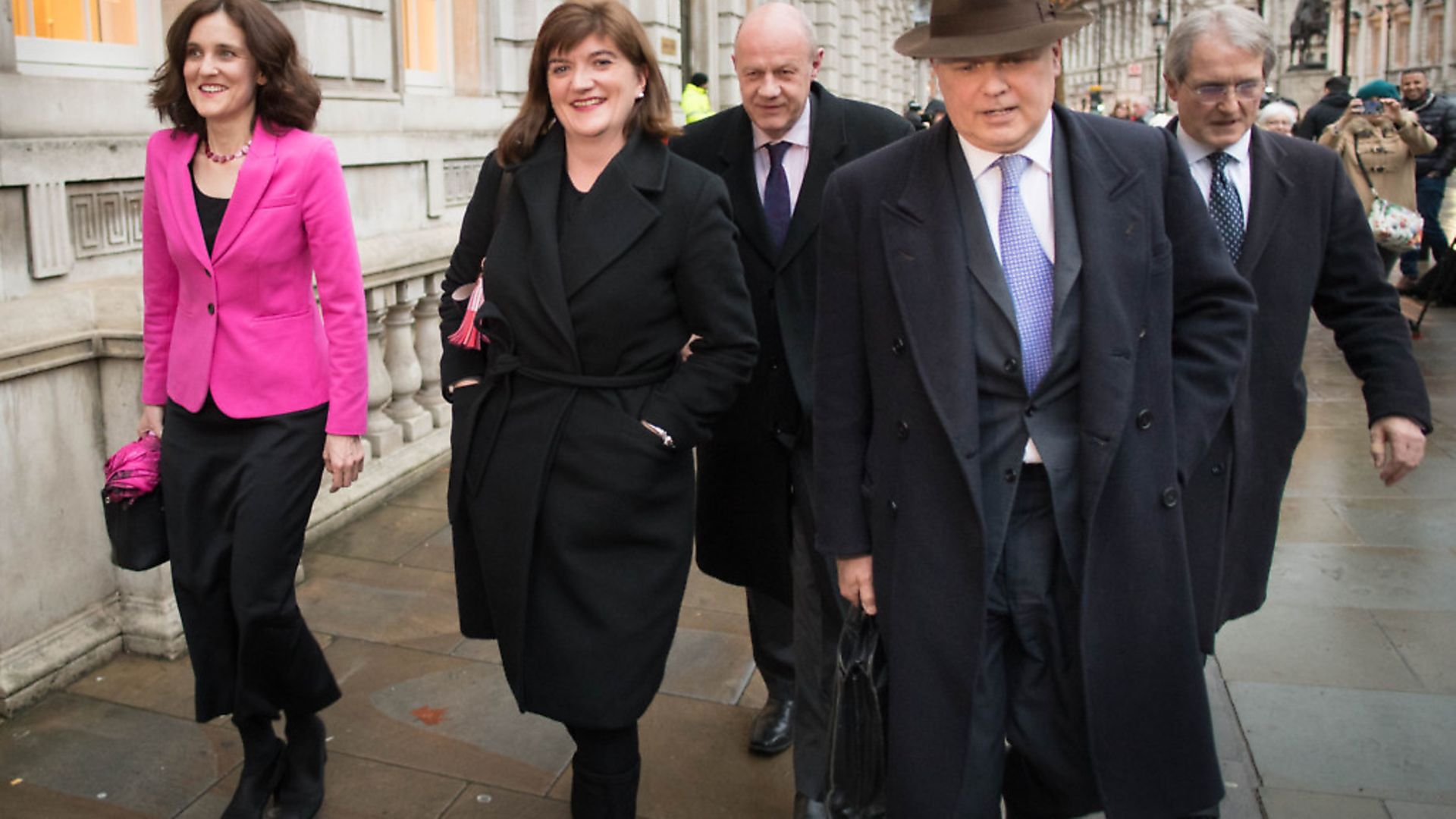
Campaigners for a second referendum have dismissed plans the Tories’ ‘compromise’ as an ‘inadequate proposal’.
Best for Britain campaigners have set out why they believe that the plan will not work.
A spokesperson explains: ‘The term ‘compromise’ is misleading because the Malthouse plan isn’t a compromise at all. It is a thin veil for the fantasies of the ERGers that technology could be used to solve the border question. The UK and EU have expended over two years exploring this option – and it has been proved inadequate.’
They cite eight reasons why they do not believe it can win over the House of Commons – let alone the country.
1. The EU will not agree a Withdrawal Agreement without a backstop that guarantees no hard border in Ireland into the future, with no deadline.
• Yet the new ‘Plan A’ proposal would see the backstop replaced by the Brexiters’ ‘Max Fac’ fantasy, which was exposed last year as unworkable. The EU comprehensively rejected the view that technology solutions can replace a border.
• The chancellor has admitted that EU leaders have already rejected the ‘Max Fac’ customs plan. This has been confirmed by the House of Commons Library.
• Business leaders, industry groups, and trade unions have explicitly rejected the ‘Max Fac’ idea.
2. This plan would see us pay a £50 billion divorce bill with no certainty of a lasting deal.
• Like the prime minister’s deal, Plan A would see the UK paying a substantial sum of money to the EU without any assurances or guarantees about the future trading relationship between Britain and the EU.
• What was originally billed as an ‘implementation period’ would instead become a three-year period of further negotiations.
3. It doesn’t eliminate the risk of ‘no deal’ and leaves us without a clear destination.
• The plan to time-limit Britain’s offer on citizens’ rights, money, and the implementation period until December 2021 means that there is a risk of Britain dropping out of the EU without a deal if no agreement can be reached.
• With agreement on the future relationship delayed, there is a lack of clarity about what the future holds, which leads to continued uncertainty.
4. This so-called plan would see the UK ask the EU for a transition period without a Withdrawal Agreement, something that has been comprehensively rejected by the EU.
• The ‘implementation period’ negotiated by the Government will only happen if the UK and EU agree a withdrawal deal before 29 March 2019, as Michel Barnier has stated.
• While the EU want to avoid no deal, they know that a no deal outcome will hit us more than them.
5. It is another form of ‘blindfold Brexit’ where we hand over all our negotiating cards with no certainty over the future.
• This is a ‘blindfold Brexit’: the Brexiters are intent on taking us out of the EU with no clarity about the future because they know promises were made that can never be delivered.
• They’re trying to conceal the full consequences of Brexit while pretending what they’ve failed to achieve in the past two years can be magically negotiated when we’ve handed over our biggest negotiating cards.
• The consequence of pursuing this plan would likely be a no deal Brexit.
6. It would jeopardise peace in Northern Ireland.
• It is clear and widely reported that a ‘no deal’ scenario would see physical infrastructure and checks on persons and goods crossing the border between the Republic of Ireland and Northern Ireland reintroduced – a breach of the Good Friday Agreement that secures peace in the region.
• Brexiteers like Jacob Rees-Mogg have previously said that we should check people at the border just like during The Troubles: ‘There would be our ability, as we had during the Troubles, to have people inspected.’
7. It would serve as a basis for the Brexiters’ hard-line economic fantasies, potentially decimating UK manufacturing and agriculture.
• Under WTO rules, the plan’s proposed transition to a ‘GATT 24 WTO-compliant standstill on trade with no tariffs’ or other barriers would mean the UK would have to unilaterally drop all tariffs from all countries.
• The savings from unilateral tariff cuts are estimated to be just 0.35% of GDP.
• The influential Brexit economist Patrick Minford, who has been commissioned for economic analysis by the Brexiters behind this plan, has previously predicted that such as scenario would ‘would mostly eliminate manufacturing, leaving mainly industries such as design, marketing and hi-tech. But this shouldn’t scare us’.
8. This so-called plan would throw Brits living in other EU countries under the bus.
• The proposals put forward only entail a unilateral guarantee on EU citizens’ rights, meaning UK citizens living in other EU countries would lack a guarantee of their status and be at the mercy of each EU member states’ government to safeguard their status and rights.
The People’s Vote campaign also said that the compromise was ‘not surviving contact with reality’.
Ben Bradshaw MP said: ‘We’ve had nearly three years of fantasy technological solutions, countless documents full of complex legalese and what feels like endless parliamentary debate. But neither the threat of a hard border in Ireland nor the core problem of Brexit is any closer to being resolved. This is not just about the backstop, it is a bad deal full stop.
‘What was promised to people in 2016 simply cannot be delivered no matter how you slice or dice it, there is no form of Brexit that is as good as the deal we’ve already got in Europe. Theresa May’s ever vaguer proposals will not resolve anything. It just means the debate about our relationship with the EU will go on forever, because all the big questions are still unanswered and successive governments will continue efforts to make sense of a deal that makes no sense for Britain. That’s why the public need to have a final say through a People’s Vote.’









